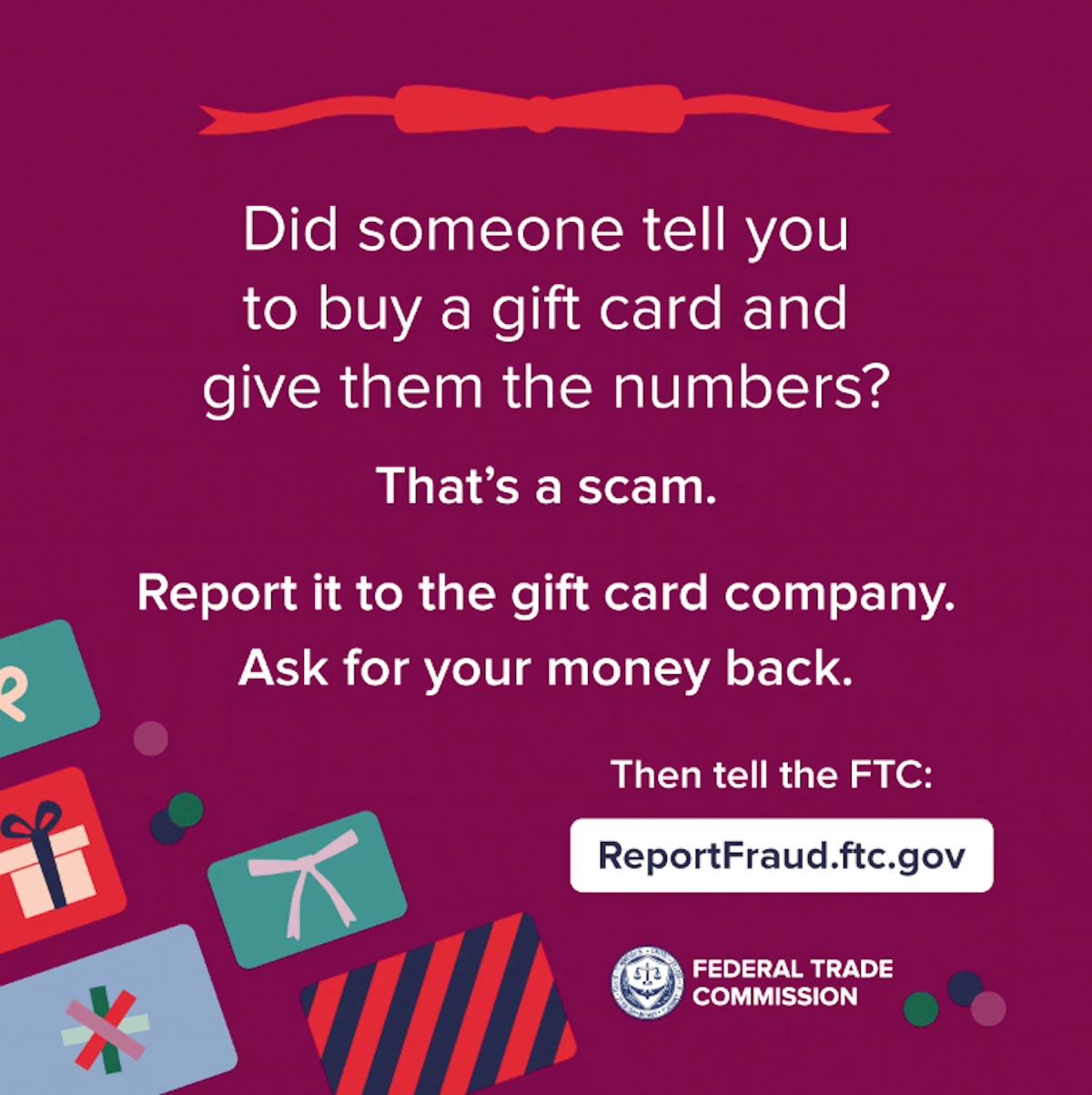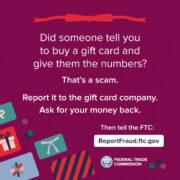
WHAT’S one way to keep your money safe from scammers during the holidays? If you’re in the check-out line buying gift cards, make sure they’re for gifts. Only gifts. Not because someone tells you to buy gift cards and give them the numbers off the back of the card. Only scammers say that.
Gift card scams start with a call, text, email, or social media message. It’s usually for something urgent and they want you to pay right away. Scammers might say they’re from the government or a company you know. Or, thanks to AI voice cloning, they might even sound just like the friend or family member they call pretending to be, asking you to send money to fix their emergency. No matter what they say, it’s a trick to get you to go to a store, put money on a gift card, and give them the numbers. It’s a scam.
If you think you gave a gift card to a scammer, act fast. Grab your gift card and gift card receipt, then:
- Report the gift card scam to the gift card company. It doesn’t matter how long ago the scam happened. Use this How To Contact Gift Card Companies list to report it.
- Ask for your money back. Some companies are helping stop gift card scams. They might give your money back. It’s worth asking.
Tell the Federal Trade Commission (FTC) at ReportFraud.ftc.gov. Your report makes a difference and helps protect people in your community from fraud and scams.
And what about those free gift card offers? Lots of scammers send phishing emails promising free gift cards in exchange for your personal or financial information. Save your money. Don’t click on any text or email links.
So, gift card for your 17-year-old niece who’s impossible to buy for? Sure. Gift card for the person who just called with an urgent reason to go get a card and share the PIN numbers? Heck no. Learn more at ftc.gov/giftcards. (Cristina Miranda/Consumer Education Specialist, FTC)





